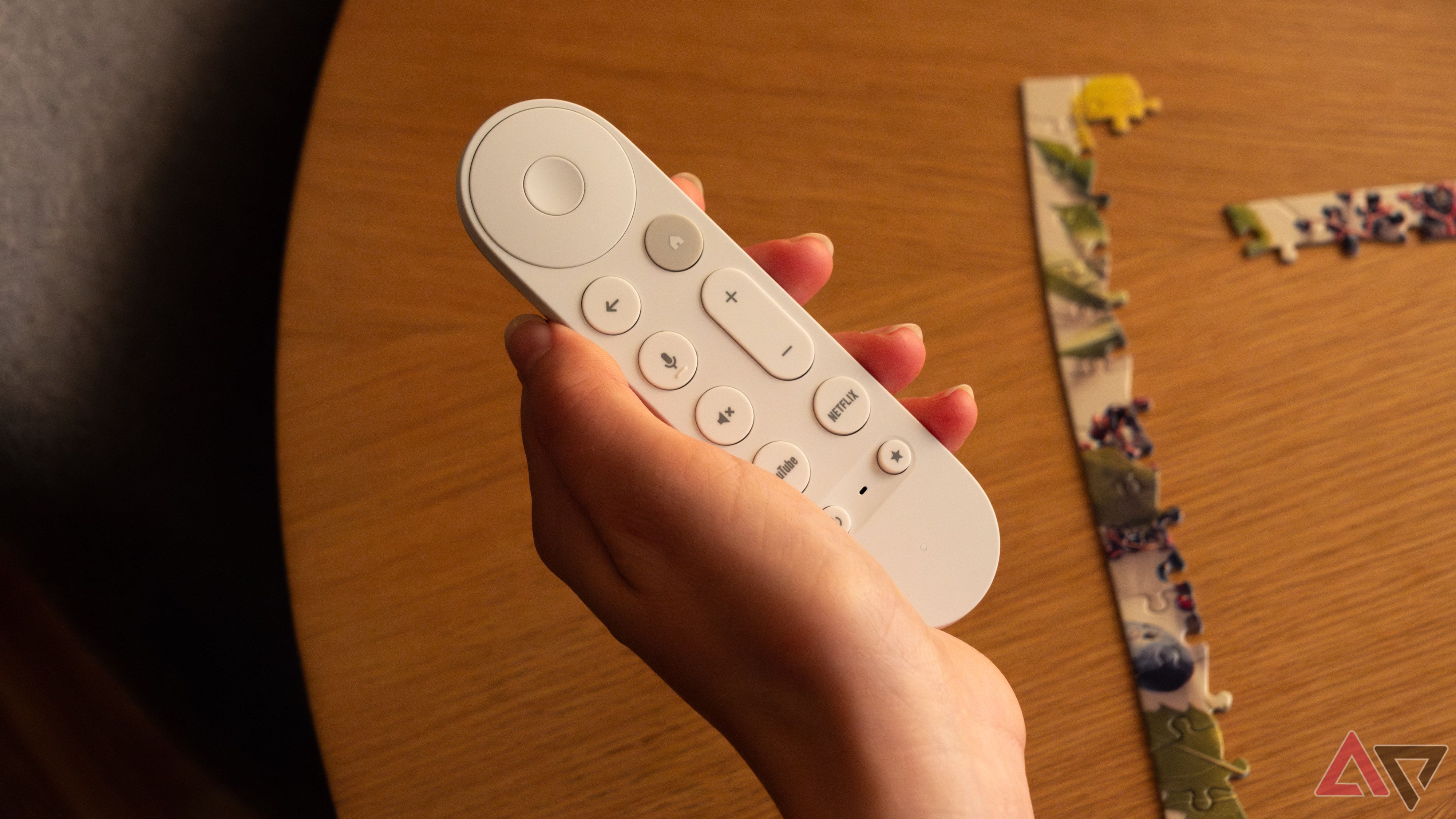Super Bowl LIX is today. Google’s got a handful of ads lined up, all of which feature Gemini. They’re available to watch online already: there’s bespoke ads for each of the 50 states meant to illustrate how Gemini helps small businesses keep payroll down, plus a spot about how it can help you trick your girlfriend’s family into liking you. One ad in particular is getting a lot of attention — but I don’t know if it’s for the right reasons.
Welcome to Compiler, your weekly digest of Google’s goings-on. I spend my days as Google Editor reading and writing about what Google’s up to across Android, Pixel, Gemini, and more, and talk about it all right here in this column. Here’s what’s been on my mind this week.
The ad, titled Dream Job, features a man prepping for a job interview using Gemini Live on his Pixel 9 Pro. The ad opens on our protagonist giving an answer about his work experience in kind of an awkward, halting way. He asks to try again. Gemini responds with simulated patience: “Okay. When you’re ready, tell me about the job that taught you the most.” “Hmm,” the man whispers thoughtfully. “Okay.”
For the next minute and change, the man in the ad describes his experience raising his daughter, his words synced to scenes of family life over soft piano music. “I got pretty used to, you know, working long hours with a small team,” Gemini Dad says over a clip of him and his partner in pajamas, high-fiving as they pass each other in the hallway outside their newborn daughter’s nursery. “I got really comfortable, uh, multitasking,” he adds, describing a scene in which he’s feeding his infant daughter while also talking on the phone and giving attention to a young puppy.
Over the course of a handful more vignettes of the man spending time with his daughter — reading her bedtime stories, dressing up with her for Halloween (“If it’s for the team, I’ll do whatever it takes,” he says, as a Google Photos UI flashes pictures of the family in costume over the years) — his confidence grows. The ad culminates in Gemini Dad tearfully dropping his now-grown daughter off for her first day of college (they hug) before firing up Google Meet to tackle the interview he’d been prepping for.
People seem to love the ad. “You might want to get some Kleenex for this one,” Carson Daly said introducing the clip on The Today Show. Adweek called the spot “heartfelt” and its story “moving.”
I can’t say the gut reaction isn’t earned: Dream Job is shot and acted well, and tuned perfectly to tug at the heartstrings (it’s implied that the puppy from the beginning of the ad gets sick and dies later on, for crying out loud). I’m not a father, but I admit even I got a little misty-eyed. Director Henry-Alex Rubin and production house Smuggler understood the assignment on this one: it’s a certified tearjerker, telling a concise and moving story over the course of just two minutes.
Remember that Gemini ad from the Olympics?
The Super Bowl spot seems like a course correction from the company’s last parenting-themed Gemini ad premiered during a high-profile sports event. Google’s “Dear Sydney” spot, aired during the 2024 Summer Olympics, depicted a father asking Gemini to help his young daughter write a fan letter to hurdler Sydney McLaughlin-Levrone — offloading what could have been a meaningful father-daughter bonding experience to AI. That ad faced such swift and strong backlash that Google pulled it from TV. It’s still up on YouTube, but comments have been disabled.
Not so for Dream Job. There, comments are glowing, talking about how sweet and human the advertisement is. One comment opines: “This is hands down the best ad for any AI product/service so far. It prioritises the humanity of people and uses AI as a side character of the narrative, as it should be!” (Google replied: “We’re so glad you enjoyed it. ❤️”)
I’m not sure that is how it should be. I agree that AI, advertising, and most everything else should prioritize people’s humanity. But as the commenter notes, Gemini really is a “side character” in all this. Gemini isn’t helping the dad navigate parenting, or to plan something special for his kid. It’s listening to him talk about her like he’s writing an unhinged LinkedIn post. The ad highlighting Gemini’s capacity to help users transition between jobs at a time when anxiety over AI displacing knowledge workers is soaring also feels more than a little pointed.
Don’t get me wrong, the functionality being advertised here could be very useful. The ability to practice for a job interview without needing to identify and carve out time with a partner who’s both willing and has useful input is sure to help a lot of people land new gigs — even if they’re looking for one because AI pushed them out of their old job.
But couching it in a hyper-emotional story like this feels conspicuously manipulative and cynical, especially given the content of the narrative doesn’t have anything to do with the product being advertised. Parenting is very real and valuable work, of course. But as far as Gemini is concerned, the man in the commercial could be describing any life experience; it just happens to be something teary and widely relatable.
Parenthood as a tech ad trope
I know; welcome to advertising. Google’s hardly the only big tech company making sentimental overtures to people with children. For months, Amazon’s been running an ad in which a beleaguered stay-at-home dad gets on top of parenting by getting way into coffee using products he had delivered through everyone’s favorite online gigaretailer. And this past holiday season, Apple put out an ad (titled, no joke, “Heartstrings“) in which a hard-of-hearing dad pops in his AirPods Pro 2 to listen to his daughter play the guitar she got for Christmas as memories of her growing up flash before his eyes.
These ads are varying degrees of schmaltzy, but in the cases of Amazon and Apple, the parental themes at least help say something about the products and services they’re advertising. Thanks to Amazon, Prime Dad got a wide variety of coffee paraphernalia delivered to his door, presumably overnight, giving him the energy he needs to tackle parenting. AirPods Dad heard his growing daughter play guitar more clearly by using his AirPods Pro 2. There’s a direct connection between the emotionally charged imagery and the functionality of the things we’re meant to spend money on. Gemini Dad, by contrast, is practicing for a job interview — coincidentally, by distilling the joys and difficulties of parenthood into corporatized soundbites. Sounds great, Google. Sign me up.
We’re all Gemini
That the ad is nominally about Pixel phones is also puzzling. The functionality depicted — Gemini Live — is available on practically every Android phone out there. You can even get it on iPhone.
Gemini is, of course, Google’s primary focus in 2025. That’s obvious to anyone using Google’s other products and services, which are increasingly vectors for AI. It seems like it’s also been made abundantly clear within Google.
In October, incoming Google CFO Anat Ashkenazi said on an earnings call that one of her top priorities was to facilitate “cost efficiencies” while also continuing to scale AI efforts. Last week, Google SVP of Platforms and Devices Rick Osterloh made moves in that direction, distributing a memo outlining a “voluntary exit program” for Googlers working on the Pixel, Android, and Chrome teams — essentially incentivizing those workers to quit of their own accord. The offer wasn’t extended to AI teams.
The Pixel 9 Pro in Google’s Dream Job ad is purely incidental; it could be any phone. And the dad’s story, however compelling, is incidental too: the person using Gemini here just happens to be a father. Taken together, I feel like this all might betray something about the way Google sees both its hardware and its users. Next to Gemini, everything else is an afterthought.
A one-minute cut of Google’s Dream Job ad is set to air today during the second quarter of the Super Bowl.




